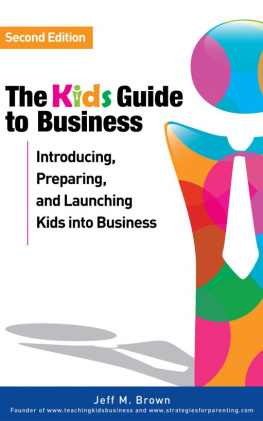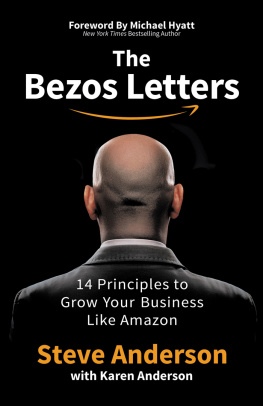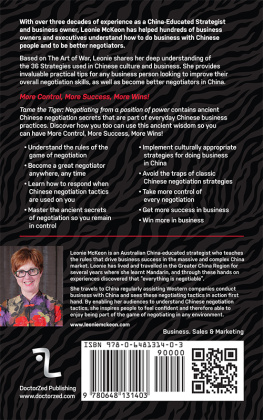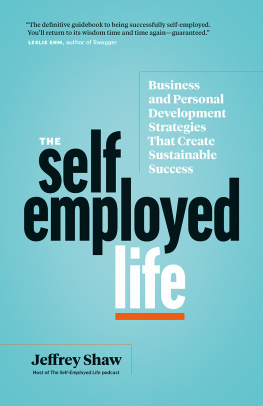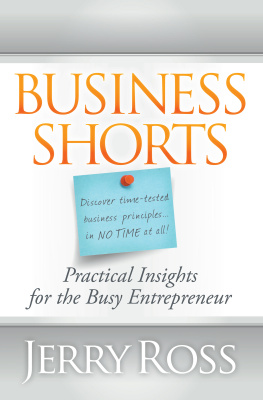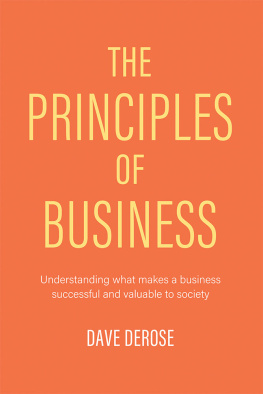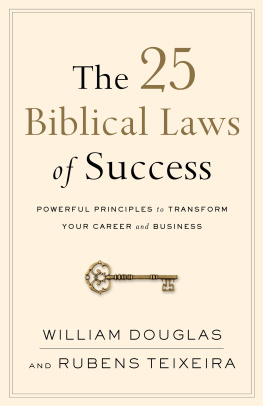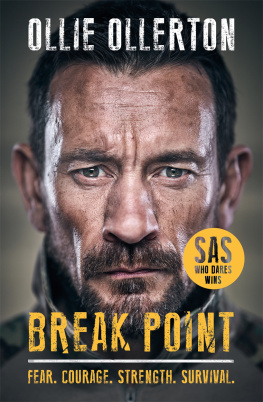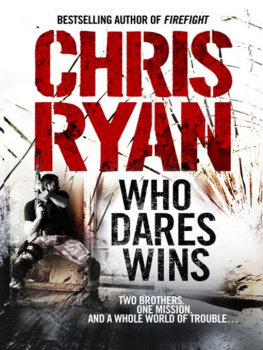Who Dares Wins in Business
Joff Sharpe
First published by Thistle Publishing in 2014
Copyright Joff Sharpe 2021
This edition published in 2021 by Lume Books
30 Great Guildford Street,
Borough, SE1 0HS
The right of Joff Sharpe to be identified as the author of this work has been asserted by them in accordance with the Copyright, Design and Patents Act, 1988.
All rights reserved. No part of this publication may be reproduced, stored in a retrieval system, or transmitted in photocopying, recording or otherwise, without the prior permission of the copyright owner.
Table of Contents
Introduction
Have you ever fancied the SAS life - even for a heartbeat? Be careful what you wish for. We live in a time of crisis. Fires rage the length of the West Coast of America. Theyve only just gone out in Australia on the other side of the world. A heat-wave is melting the permafrost in Siberia releasing methane gases that threaten the stability of our atmosphere. There is - quite literally - a burning platform. The decline in biodiversity is unprecedented and, as we collide with other species, weve unleashed a pandemic that has almost brought the global economy to a standstill, threatening any business that didnt have the cash reserves to weather the storm. Unusual climate conditions also spawned the worst locust storm in eighty years, ravaging East Africa. In Spite of - or maybe because of - these things the world is at war with itself with major conflagrations in more than 40 places. In some countries, like Afghanistan, war and its horrors have become a whole life experience for most of the population. Worldwide, around 70 million people have been displaced from their homes and nearly half of that number now roam the planet as refugees.
There is no upside. But crises do create opportunities for those who can pivot, leveraging new business models and technologies to create better alternatives. Since business-as-usual isnt working, the time has come for courageous leaders to step up with creative new solutions. They will need to show innovation, humanity, decisiveness, cooperation and many other qualities in abundance. There is much at stake.
What can we learn from the SAS analogy? At the very least, it is an organisation that has confronted the toughest situations imaginable with great daring - and it tends to win.
Ill be brief
The first edition of Who Dares Wins in Business ran to 235 pages. My readers bounced between the sections like a hopping bird looking for the fattest worms. I know this because authors can see the consumption of Kindle pages. I dont take it personally. No one reads whole books anymore. We live in a digital world of short attention spans but also greater customer intimacy. So, Ive pruned this Second Edition Fighting Back the SAS Way to a more manageable 174 and made sure that youll find at least one big idea for every 2-3 pages. Give it a try pick a random section and see what you find.
Having thrown down that challenge, I have to say that the first couple of chapters are pretty important if you want to understand the whole SAS approach. And Im confident that theres something in this book for you, whatever business youre involved in. Since publication I have delivered the books core messages via public speaking engagements to insurance companies, entrepreneurs, gatherings of finance directors, a recruitment jamboree in Ibiza, a provincial real estate company, university athletes, a school business studies course, a corporate lawyers shindig in Alicante, Wall Street banks, a PR company specialising in the luxury sector and a regional export hub to name but a cross-section. I published excerpts via an MBA column in the South China Morning Post which spawned a Chinese edition of the book. During the Covid crisis I podcast a version to 450 members of the Global Workspace Association in 23 countries. Without exception, these audiences were quick to connect the lessons of WDWiB (this book) with their everyday lives in business. The SAS analogy works. The data says so. But it requires thoughtful interpretation.
Getting to the knowledge
The subject of the SAS seems to appeal to a sort of popular warrior instinct. The SAS craze began when Steve Mitchell - better known as Andy McNab - opened the proverbial SAS kimono with his best-selling book Bravo Two Zero . The public lapped up this (possibly embellished) tale of the regiments least successful mission, in which bravery and resilience far exceeded planning, operational good practice and sound judgement. Fast forward to 2015 and the SASs selection procedure became the basis for a wildly successful TV programme Who Dares Wins . The audience cares little that three of the four instructors werent in the SAS and the one that was in gets furious with contestants who dont take things seriously enough, oblivious to the irony that he is co-hosting a game show featuring celebrities like ex-glamour model Katie Price and Joey Essex. No one cares that SAS selection is a 6 month long attritional process, not 8 days or that real SAS candidates arent, in reality, shouted at very much because the whole point is to test the candidates self-motivation and independence.
Dont get me wrong. Im not saying these Special Forces media heroes are schmucks. On the contrary. Mitchell went on to become a best-selling author and secured a well-deserved CBE for services to literacy. Ant Middleton and his boys, highly credible members of the SASs sister organisation the Special Boat Service, have made a fortune from their work. But the world they inhabit doesnt translate easily to everyday business life, beyond the simple idea that: if they exhibit qualities like courage and determination, we should do likewise. In fact, one of the Who Dares team penned a candid memoir in which he describes just how alien he felt corporate life was for him when he left the military. So to get to the real nuggets of commercial wisdom we need to sift much more carefully through the muck and bullets.
It all starts with the SASs creation.
A pocket history of the SAS
The SAS exists because what came before wasnt working. In the course of the wartime North African campaign 1941-43 there were around a million casualties, shared between all sides. One million men. Killed, wounded, captured, lost, bones buried in the sand. Thats a lot of dead people and a lot of unhappy families back home. Sometimes the Germans and Italians had the upper hand, sometimes the British and their Commonwealth allies. Both sides believed that the way to win was to concentrate their forces into massive, armoured formations that could smash their way through enemy lines. In one such smash-up my uncle was blown up in his tank and blinded. (He survived, later to become Chairman of the Control Risks Corporation).
Cest la guerre. Or at least that's how most people saw it. But in a hospital bed in Cairo lay an iconoclastic Army officer called David Stirling. He was no poster boy for his regiment, the aristocratic Scots Guards. Before the War his Cambridge University life revolved around betting on horses at nearby Newmarket. From there he flip-flopped from life as an artist in Pariss sleazy Pigalle, to alpine mountaineering and cattle ranching on the North American plains. He was a gambler, a dreamer, a curiosity to his aloof father and most unsuited to military life. But like everyone else, war rounded him up, put him in uniform and flung him into the maelstrom.
Stirling had no love of conventional military discipline but he certainly didnt lack courage. He volunteered for the Commandos, along with his brother. But when there wasnt any action he became quickly bored and was on a charge for malingering when he hit upon the idea of experimenting with some parachutes. The parachutes were supposed to be heading to a unit in India but he confiscated them, jerry-rigged the static-line (rip-cord) to a light aircraft and caught some air as parachutists like to say. With little technique, his massive six foot six frame hit the ground on landing like a sack of potatoes, badly injuring his legs. Hence to hospital.


